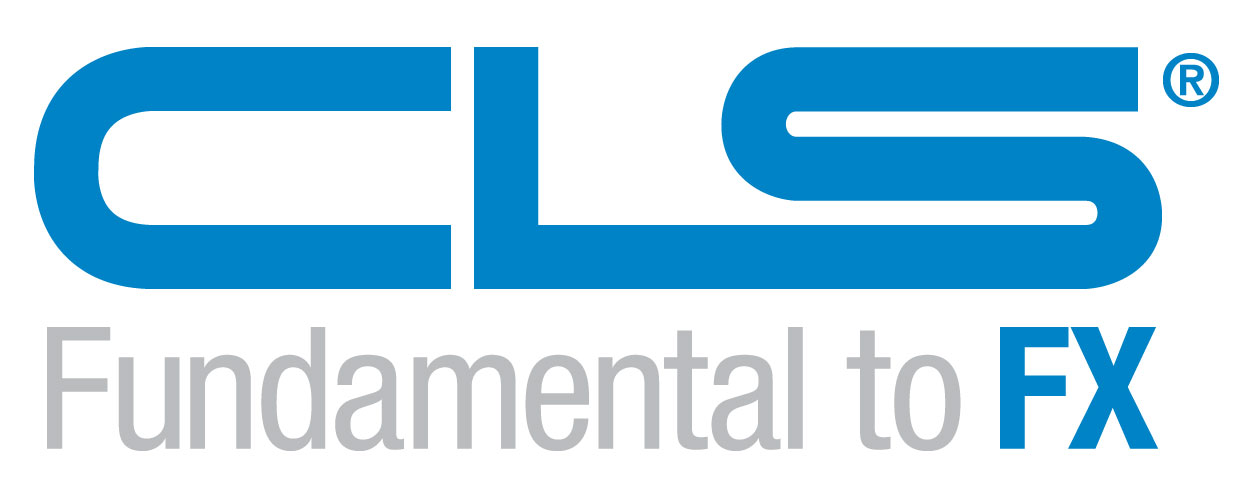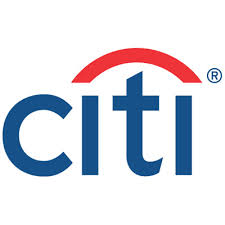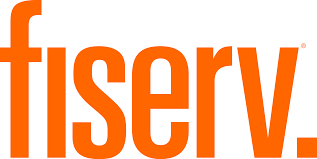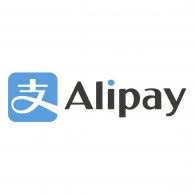Published
- 03:00 am

CLS Group (CLS), a leading provider of risk mitigation and operational services for the global foreign exchange (FX) market, has signed a Statement of Commitment to the FX Global Code. The declaration states that CLS has adopted and implemented the principles of the Code.
CLS Statement of Commitment:
“CLS Bank International (“Institution”) has reviewed the content of the FX Global Code (“Code”) and acknowledges that the Code represents a set of principles generally recognized as good practice in the wholesale foreign exchange market (“FX Market”). The Institution confirms that it acts as a Market Participant as defined by the Code, and is committed to conducting its FX Market activities (“Activities”) in a manner consistent with the principles of the Code. To this end, the Institution has taken steps, based on the size and complexity of its Activities, and the nature of its engagement in the FX market, to align its Activities with the principles of the Code.”
CLS has also established a public register for FX Global Code Statements of Commitment. The register, available on the CLS website, is exclusive to settlement members and will include signed copies of their Statements of Commitment.
David Puth, CEO of CLS, comments: “The FX Global Code is a common set of principles for good practice in the foreign exchange market. As one of the largest risk mitigation providers in the FX market, serving over 60 banks and 23,000 third-party entities globally, CLS is committed to implementing the principles of the Code and leading by example on ethical behavior and best practice.”
David Puth played a significant role in the creation of the Code as Chairman of the Market Participants Group. Following the launch of the Code, David has been appointed Vice Chairman of the Global Foreign Exchange Committee (GFXC), which seeks to promote a robust, liquid, open and appropriately transparent FX market.
Related News

- 07:00 am

According to the 2017 Debit Issuer Study, commissioned by PULSE, one of the nation’s leading debit/ATM networks, U.S. financial institutions substantially increased issuance of chip debit cards in 2016 and experienced reduced fraud losses.
Nonetheless, the 12th annual Debit Issuer Study confirmed that fraud continues to challenge issuers. U.S. financial institutions lost an estimated $900 million to debit card fraud in 2016.
“The financial services industry has taken a number of measures that likely impacted the reduction in fraud losses for debit card issuers,” said Jim Lerdal, Vice President of Fraud and Risk Management for PULSE. “Among them are the conversion to chip debit cards, greater use of tokenization in mobile commerce and continued investment in fraud-mitigation solutions.”
But reducing card fraud is not a simple prospect.
“The more financial institutions tighten fraud-tolerance limits, the more they risk negatively impacting the cardholder experience,” said Lerdal. “It is a balancing act because declining potentially fraudulent transactions could lead to ‘false positive’ fraud identification, which can frustrate account holders and potentially drive them to other methods of payment.”
Mobile wallets see increased enrollment, but low usage
The study also found enrollment of debit cards into Apple Pay increased 80 percent in 2016. Key findings include:
Three out of four issuers now support debit cards being loaded into at least one mobile wallet.
Enrollment among consumers also has increased, with Apple Pay remaining the most popular mobile wallet of the big three “Pays,” which include Android Pay and Samsung Pay.
Despite this momentum, usage of debit cards in mobile wallets remains low. Combined, Apple Pay, Android Pay and Samsung Pay account for only about one-quarter of 1 percent of U.S. debit transactions.
Continued growth of debit
Debit card usage grew in 2016, driven by an increase in both the overall card base and transactions per active card. Study findings include:
The total number of debit transactions continued to increase, rising an average of 7 percent year-over-year in 2016 for the issuers in the study.
The number of debit transactions per active consumer card reached a record high of 23.6 transactions per month, which represents a 6 percent increase over results report in the 2016 study.
The number of debit cards increased 1 percent year-over-year.
“This year’s study confirms that debit remains a core part of the expanding payments landscape, even as new forms of payment emerge,” said Steve Sievert, Executive Vice President of Marketing and Brand Communications for PULSE. “The average consumer now uses their debit card 39 percent more often than they did in 2010, and for more transactions of lower value, indicating that debit is a fundamental financial tool for their everyday lives.”
Chip card growth likely to slow as transition plateaus
Issuers have put chip debit cards in the hands of consumers at a faster pace than anticipated in last year’s study. “Chip-on-chip” transactions - those conducted with chip-enabled cards at chip-enabled terminals - amounted to 30 percent of all debit transactions in January 2017, a 650 percent year-over-year increase.
“The growth of chip-on-chip transactions is likely to slow as the card base migration concludes,” said Tony Hayes, a Partner at Oliver Wyman who co-led the study. “In addition, many transactions are not chip-eligible, such as online purchases and fuel dispenser transactions.”
About the Study
The 2017 Debit Issuer Study is the 12th installment in the study series, commissioned by PULSE and conducted by Oliver Wyman, an independent management consulting firm. The study provides an objective fact base on debit card issuer performance and financial institutions’ outlook for the debit card business. Fifty financial institutions - including large banks, credit unions and community banks - participated in the study. Collectively, the participants issue approximately 134 million debit cards. The sample is representative of the U.S. debit market in terms of institution type, geography and debit network participation.
Related News
- 08:00 am

SWIFT announces that it will provide U.S. institutions with a gateway to The Clearing House’s real-time payments (RTP) platform.
The Clearing House (TCH) is building a new clearing and settlement system to support domestic instant payments in the U.S., allowing consumers and businesses to send and receive payments in real-time and directly from their accounts at financial institutions. It will also include data and non-payment messages that financial institutions can use to build digital commerce solutions.
SWIFT’s solution for the U.S. market will provide banks with the opportunity to leverage a single platform, Alliance Messaging Hub (AMH) for both SWIFT high-value payments and low-value TCH real-time payments. AMH is an orchestration layer that includes a gateway to the TCH RTP network, as well as other gateways and API's which allow financial institutions to connect to other non-SWIFT networks. Financial institutions can leverage AMH to support instant payments, simplifying adoption to our customers. The solution will be commercially available by early 2018.
“SWIFT is working together with communities worldwide to support the global shift towards real-time payments, and we are pleased to be at the forefront as the U.S. market evolves,” said Ignacio Blanco, Director, Strategic Relationships at SWIFT. “The Clearing House is making great strides in accelerating the speed of transactions, and we are committed to playing our part in helping the financial community to operate as efficiently as possible.”
Steve Ledford, SVP Product and Strategy at The Clearing House, added: “Given its reach and expertise in payments, SWIFT is a great collaborator as we bring a wide-scale real-time payments system to the U.S. market. Achieving our vision of broad adoption of real-time payments will only be possible when the majority of U.S. institutions are able to participate, and SWIFT will be instrumental in helping us meet this goal.”
This solution is the latest development in SWIFT's global instant payments strategy, and builds on SWIFT’s earlier success in Australia and in Europe. In 2015, SWIFT was awarded the contract to deliver the messaging infrastructure to underpin Australia’s new payments platform, NPPA, which is expected to go live later in 2017. Earlier this year, SWIFT announced the launch of an instant payments messaging solution, first for the European market, and elsewhere. It will allow instant payments to be made over the SWIFT network and provide customers with a single gateway to connect seamlessly to multiple instant payments systems. Amongst others, it will offer connectivity to the Eurosystem’s TARGET Instant Payment Settlement (TIPS) and will support the delivery of the future Eurosystem single gateway to TIPS, TARGET2 (T2) and TARGET2 for Securities (T2S) platforms, as laid out in the Eurosystem’s Vision 2020.
Related News
- 08:00 am

Emirates NBD, a leading bank in the region, today announced the launch of ‘Advance Account’, which will enable employees of the bank’s payroll customers who are new to the UAE to receive their account number on the first day of employment.
Commenting on the initiative, Suvo Sarkar, Senior EVP & Group Head - Retail Banking and Wealth Management said: “The UAE is home to among the world’s largest expatriate workforces and we are delighted to collaborate with our local payroll customers to provide their new employees a seamless start to life in the UAE. Having an account number from day one in the UAE will empower our customers, offering them convenience while saving valuable time. Advance Account raises the bar in terms of banking in the region and we are certain it will be well received.”
Following visa processing, customers can apply for a range of products including a cheque book and their choice of credit card from Emirates NBD’s product suite.
Related News
- 02:00 am

CloudMargin, the multi-award winning creator of the world’s first web-based collateral and margin management solution, today announced the release of a comprehensive interactive “FlightPlan” microsite designed to help financial institutions globally navigate the uncleared margin rules and other regulations impacting their collateral management function.
Designed by the UK-based digital firm Eight Arms, the FlightPlan microsite offers a range of interactive digital tools, including a map identifying regulations in major jurisdictions around the globe, a readiness checklist and a solutions comparison activity, all tailored to the inputs the user provides within each tool. The site also features a resource hub populated with additional industry tools, blog posts and articles.
As a result of the financial crisis, global leaders at the 2009 G-20 Summit in Pittsburgh agreed on a range of measures to make the over-the-counter (OTC) derivatives market safer and more secure through the wider use of central clearing and the posting of Initial Margin (IM) and Variation Margin (VM) for trades not centrally cleared. Rules covering central clearing of OTC derivatives were implemented beginning from 2012, and uncleared margin rules have been taking effect on a rolling basis from 2016 to 2020. Among the upcoming new collateral requirements facing the financial industry are the Sept. 1 end of the forbearance period on VM in multiple jurisdictions; the Dec. 15 deadline related to FINRA 4210; the Jan. 3, 2018 deadline for physically settled foreign exchange (FX) forwards; and the roll-out over the next few years of complex rules on IM.
Said Kari Litzmann, CloudMargin Chief Marketing Officer: “Just as CloudMargin simplified the collateral and margin management process for firms through a cost-effective, cloud-based workflow tool, FlightPlan seeks to cut through the clutter and simplify the process of accessing quality information so that firms can get back to doing what they do best.
“We want this to be a go-to resource for firms affected by these new regulations, whether they operate in one country or in regions throughout the world. This will be a dynamic site, with new information and resources added as events unfold. We aim to make this site a place where we can show the value of being a part of the CloudMargin community - where we can bring people and organisations together and offer holistic solutions for the marketplace. Each contributor to the site thus far provides a unique and important perspective, and we look forward to contributions from other relevant parties to further enhance the site in the future.”
The site is populated with insights from a wide range of diverse market participants and service providers such as Derivatives Risk Solutions LLP (DRS) and SmartDXTM from Smart Communications. The regulatory mapping has been provided by DRS, a leading regulatory consultancy combining derivatives documentation expertise with full-spectrum outsourcing services. SmartDX is the industry standard for automating trade and relationship document generation, collaboration and processing in the capital markets.
Related News
- 09:00 am

Zoot, a global provider of advanced instant credit decisioning, risk management, loan origination and workflow management solutions, announced today a partnership with Credit Kudos, a technology start-up that uses consumer transaction data to build highly accurate and transparent credit scorecards and affordability metrics.
Adam Jackson, Zoot’s Managing Director commented, “there is an excellent cultural and technological fit between Zoot and Credit Kudos and we are excited at the value this partnership will bring to our clients. Zoot have been driving innovation within the financial services industry for over 26 years and Credit Kudos are setting the pace for risk scoring powered by consumer consented transactional data.”
Freddy Kelly, Credit Kudos CEO stated, “with PSD2 and Open Banking on the horizon, combining transaction with bureau datasets is quickly becoming a competitive requirement. Using Machine Learning (ML) we’ve trained models to predict risk based on a borrower’s transaction history. The Credit Kudos Connect.js library and Zoot’s decision engine give our customers the ability to immediately leverage our models without redesigning their processes. Working with Zoot builds on this speed and simplicity. Zoot’s cloud-based platform enables the flexibility that is necessary to effectively deploy and iterate on such augmented scorecard strategies. Zoot are known for the flexibility and reliability of their services and our product enables consumers to securely share relevant information with a lender in order to get a decision. These two best in class offerings combined creates a unique proposition for our clients.”
Amongst other key industry challenges, the partnership targets reducing friction in Affordability checks, a significant problem for lenders today. The Credit Kudos service enables the collection of 12 months worth of bank statements in under 60 seconds. Accessing transactional data at a granular level extends the universe of borrowers as it also provides an accurate picture of applicants who if assessed using more traditional credit scoring methods might be regarded as thin-file or no-file applicants. The combined service will allow financial institutions to address a much wider market without forfeiting accuracy.
Freddy Kelly added, “from a regulatory perspective a “broad strokes” approach to affordability is no longer enough. We collect the necessary fine-grained income and expenditure data without holding up our clients’ customers. This data is extremely valuable and Zoot’s decision engine gives full control over the process and allows for sophisticated analysis and complex decisioning to take place in sub-second time.”
Adam Jackson commented, “combining our respective best of breed services brings a truly world-class service to market at a time when, with PSD2 and Open Banking upon us, making sense of and leveraging the full value of transactional data has never been more important.”
Related News
- 09:00 am

The Global Commercial Cards business is a core business for Citi and a key differentiator from other institutions. In this role, she will report to Naveed Sultan, Global Head of Citi’s Treasury and Trade Solutions and will continue to be based in New York.
Naveed Sultan, Global Head of Treasury and Trade Solutions said, “Gonca has a successful track record in building large and complex businesses, as exemplified in her most recent position as Head of the North American Commercial card business. We look to her to extend the current growth trajectory and consolidate the long term financial success of the global business.”
Gonca has been with Citi for over 23 years, and most recently was the head of North American Commercial Cards, where she was successful in building and growing a large and diversified business over a four year period. She joined Citi 1994 as an Analyst in transaction banking sales. She has since worked in a variety of roles in sales across corporate, financial and public sectors and was promoted to Managing Director in January 2007 as Public Sector, Product Sales Head. Gonca holds a Bachelor of Science in Finance and Marketing from the Stern School of Business at New York University.
Citi Treasury and Trade Solutions (TTS) enables our clients' success by providing an integrated suite of innovative and tailored cash management and trade finance services to multinational corporations, financial institutions and public sector organizations across the globe. Based on the foundation of the industry's largest proprietary network with banking licenses in over 90 countries and globally integrated technology platforms, TTS continues to lead the way in offering the industry's most comprehensive range of digitally enabled treasury, trade and liquidity management solutions.
Related News
- 03:00 am

Fiserv, Inc., a leading global provider of financial services technology solutions, today announced that SEFCU, headquartered in Albany, New York, has selected Fiserv as a technology partner to help drive the credit union’s member-centric growth strategy and deliver greater efficiencies throughout the organization.
SEFCU is among the top 50 credit unions in the U.S., with approximately $3.5 billion in assets and more than 350,000 members in communities across New York. For 11 consecutive years, SEFCU has been voted Best Bank/Credit Union in the annual Times Union Reader’s Poll. It carries a deep commitment to social responsibility toward the residents of its charter communities.
“At SEFCU, we want to change the world. The success of that mission depends on the strength of three strategic pillars - Employees, Members, and Community,” said SEFCU president and CEO Michael J. Castellana. “We will leverage DNA to the benefit of all three, reinventing and driving efficiencies throughout our organization. The platform will allow us to better serve our members, grow, and enhance our ability to give back to the communities we serve.”
SEFCU has a large footprint in New York, with 47 branches. As a part of its strategy, it will focus on expanding digital and online services from the backbone of DNA to complement its physical locations.
The credit union also will be able to gain better insight into members, thanks to the person-centric architecture of DNA. This architecture focuses credit unions’ line of sight on the members and businesses they serve, presenting information in a way that provides a full view of those relationships. Even at scale, it allows credit unions to keenly understand, serve, and market to members.
“SEFCU chose Fiserv to help enable their focus on ‘changing lives every day,’” said Vincent Brennan, president, Credit Union Solutions, Fiserv. “We welcome them to our growing, collaborative client community and look forward to putting our technology and expertise to work to help them deliver on the evolving expectations and needs of their members.”
SEFCU is the fifteenth credit union to select Fiserv for account processing this year.
Related News
- 09:00 am

“Our partnership with Yelp expedites our goal towards a digital lifestyle and represents a substantial opportunity for U.S. businesses to connect with the growing audience of Chinese travelers that would otherwise be difficult to reach,” said Mr. Souheil Badran, President, Alipay, North America. “Alipay is already the trusted lifestyle app for Chinese consumers at home, and our growing suite of location-based content and services will continue to elevate their experiences when they travel abroad.”
Through the Alipay app’s Discover tab, Chinese travelers in the U.S. can seamlessly access Yelp content to find local restaurants, bars and shops, get directions, read review snippets in English, make reservations as well as pay in Chinese yuan at retailers that accept Alipay.
These mobile payment-savvy Chinese consumers are visiting the U.S. in droves and this year the number of Chinese travelers in North America is expected to grow to four million. They bring with them not only enthusiasm for shopping for items they otherwise wouldn’t be able to find in China, but different payment expectations birthed through technology and built to meet cultural norms that are vastly different than those in the U.S.
“Yelp content is more important than ever in delivering a locally-aware mobile experience for travelers and locals alike,” said Chad Richard, SVP Corporate and Business Development at Yelp. “By collaborating with Alipay, we can help Chinese consumers find the perfect place to eat, shop, drink, relax and play when they’re visiting the United States.”









